#bbc philharmonic orchestra
Text
The Mighty Handful
The Mighty Handful or ‘The Five’ were a qroup of five Russian composers—César Cui, Alexander Borodin, Mily Balakirev, Modest Mussorgsky, and Nikolay Rimsky-Korsakov – who, in the 1860s, attempted to create a national school of Russian music, free of the influence of Italian opera, German lieder, and other western European forms. They composed operas on distinct Russian subjects and incorporated…
#Alexander Borodin#BBC Philharmonic Orchestra#Berlin Radio Symphony Orchestra#Borodin Quartet#César Cui#classical#Classical Music#composers#David Zinman#Jeffrey Biegel#Mily Balakirev#Modest Mussorgsky#Night On A Bare Mountain#Nikolai Rimsky-Korsakov#Ogan Durjan#Paul Archibald#Rotterdam Philharmonic Orchestra#RTHK Radio 3#Russian Easter Hymn Overture#Vassily Sinaisky
0 notes
Text
youtube
Toru Takemitsu, To the edge of dream.
BBC Philharmonie Orchester.
Christian Karlsen, Director.
1 note
·
View note
Text
The Music of The Musketeers
Part Four: The Original Television Soundtrack
♩ ♪ ♫ ♬ ♭ ♮ ♯
It's close to a decade since this treasure of a show premiered and they still have not released an official soundtrack for Series One.
[Not holding my breath... but perhaps as a 10th Anniversary event?! Can someone make this happen?]
I guess, for now, we'll just have to be content with Paul Englishby's two-CD album although The Musketeers - Series 2 & 3 (Original Television Soundtrack) does not include the title/opening theme music by Murray Gold. But, hey, there's always YouTube!
As with any good soundtrack, there's a theme for each couple (Constance and D'artagnan, Aramis and the Queen, Porthos Meets Elodie, Athos Remembers Milady, Sylvie and Athos), as well as the series' antagonists (Rochefort and The Musketeers, Milady and The Jewels, Feron, Bonnaire, Grimaud’s Wrath, King Loius).
One of my many favourites from the album is Series Three Finale, from 3x10 episode We are the Garrison. I think it's a poignant, perfect score to end the series. 💕
youtube
♩ ♪ ♫ ♬ ♭ ♮ ♯
Playlists
I know that not everyone enjoys movie or TV scores – my mom once told me she thought I was listening to funeral songs when it was the OST from The Lord of the Rings... 😅
However, if you do and would like to listen to the unreleased music from Series One, extracted by fans, you can do so here...
...and here:
Or to the entire album for Series Two and Three, which is also available for purchase (from Amazon, iTunes, Spotify, AllMusic), here:
Enjoy!
♩ ♪ ♫ ♬ ♭ ♮ ♯
Final Thoughts
While I love opening and closing themes, I rarely go for the entire score. It was different with The Musketeers. The last TV soundtrack that had the same hold on me was Once Upon a Time: The Musical Episode. I could listen to Colin O'Donoghue and Josh Dallas all day... but that's an entirely different post altogether. 🤭
Final Part: Music Inspired by The Musketeers
Part One | Two | Three
#bbc musketeers#the musketeers#the music of the musketeers#original tv soundtrack#music#awesome music#theme#album#favourites#murray gold#series one#paul englishby#series two#series three#prague philharmonic orchestra#world-renowned professional symphony orchestra#playlists#thoughts#opinions#youtube
5 notes
·
View notes
Text
Friends! Happy Friday ❤️
Yesterday was a shit day but today's looking up. My lovely friend @suchaprettychaos sent me a link to download all the tracks from the RSD record, and now you can have them too:
The 1975 Live With The BBC Philharmonic Orchestra
🩷🩷🩷🩷🩷🩷🩷
6 notes
·
View notes
Text

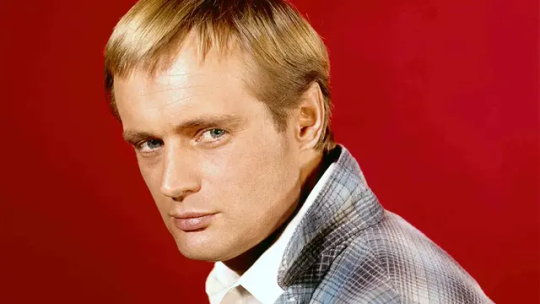


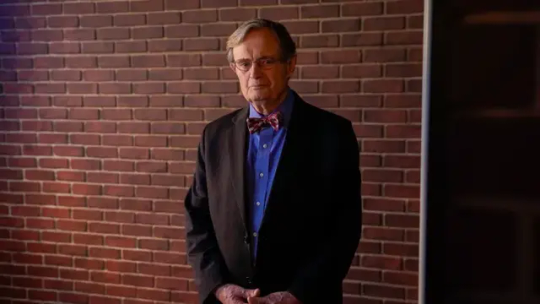

The Scottish actor David McCallum was born on 19th September 1933.
Born as David Keith McCallum, Jr in Maryhill, Glasgow, the second of two sons of Dorothy Dorman, a cellist, and orchestral violinist David McCallum Sr. When he was three, his family moved to London for his father to play as concertmaster in the London Philharmonic Orchestra. Early in the Second World War, he was evacuated back to Scotland, where he lived with his mother at Gartocharn by Loch Lomond.
McCallum won a scholarship to University College School, a boys’ independent school in Hampstead, London, where, encouraged by his parents to prepare for a career in music, he played the oboe.In 1946 he began doing boy voices for the BBC radio repertory company. Also involved in local amateur drama, at age 17, he appeared as Oberon in an open-air production of A Midsummer Night’s Dream with the Play and Pageant Union. He left school at age 18 and was conscripted, joining the 3rd Battalion the Middlesex Regiment, which was seconded to the Royal West African Frontier Force.In March 1954 he was promoted to Lieutenant. After leaving the army he attended the Royal Academy of Dramatic Art (also in London), where Joan Collins was a classmate.
David McCallum’s acting career has spanned six decades; however, these days he is best known for his starring role on the police procedural NCIS as medical examiner as Dr. Donald “Ducky” Mallard. I first really remember McCallum for his role in another US show, The Invisible Man which ran for 13 episodes in the 70’s. McCallum by then was a veteran of many TV and Film roles, starting in the 50’s including Our Mutual Friend and The Eustace Diamonds, in the 60’s he was in several ITV Playhouse shows before moving across the Atlantic to take roles in The Outer Limits and his big break as Illya Kuryakin in several incantations of The Man from Uncle.
His most notable films were The Greatest Story Ever Told as Judas Iscariot and of course Ashley-Pitt ‘Dispersal’ in The Great Escape.
As well as the aforementioned Invisible Man in the 70’s he took time to pop back over to our shores to star in two quality series, as Flt. Lt. Simon Carter in Colditz and Alan Breck Stewart in an adaption of Robert Louis Stevenson’s, Kidnapped.
The 80’s saw him team up with the lovely Joanna Lumley in Sapphire & Steel and several guest roles in the likes of The A Team, Hart to Hart and Murder, She Wrote as well as a one off reprise of Illya in the TV movie The Return of the Man from U.N.C.L.E.: The Fifteen Years Later Affair.
The 90’s saw David in Cluedo and Trainer on our TV screens over here and American science-fiction series VR-5 in the states..
During the last 20 years or so he has been in the kids TV show, Ben 10: Omniverse as the voice of Professor Paradox and of course Donald Horatio “Ducky” Mallard in a remarkable 436 episodes of the popular NCIS.
David has been married twice. He married his first wife Jill Ireland in 1957. They met on the set of the movie Hell Drivers. Together, they had two sons and a daughter, Paul, Jason and Valentine, with Jason being the only one who was adopted. In 1963, David introduced Jill to his co-star on The Great Escape, Charles Bronson, and she left David and married Charles in 1968. In 1967,
David McCallum passed away aged 90 on September 23rd last year, he is survived by his wife of 56 years, Katherine McCallum, his sons Paul McCallum, Valentine McCallum and Peter McCallum, his daughter Sophie McCallum and his eight grandchildren. NCIS paid tribute to him in an episode called The Stories We Leave Behind when the tagents find comfort in working on one of his unfinished cases. The episode features clips from several old shows.
27 notes
·
View notes
Text
The 1975 - Live With The BBC Philharmonic Orchestra





11 notes
·
View notes
Text
One of my favourite things I own is the iliwys bbc philharmonic orchestra cd
9 notes
·
View notes
Text
youtube
Artur Kapp (1878-1952) - Don Carlos ·
Neeme Järvi · BBC Philharmonic Orchestra
4 notes
·
View notes
Text
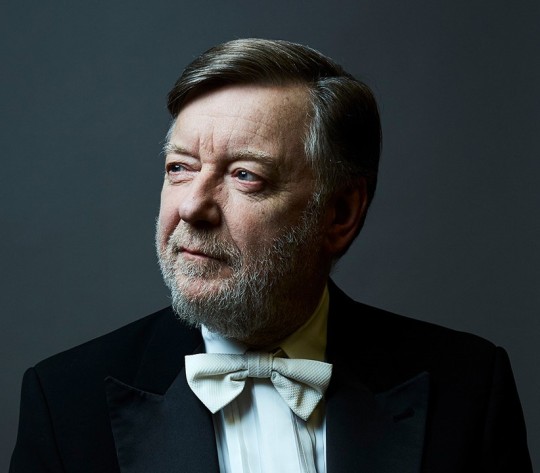
Sir Andrew Davis
One of Britain’s greatest conductors widely admired for leading the BBC Symphony Orchestra at the Proms
One of the most beloved and highly esteemed conductors of his generation, Sir Andrew Davis, who has died aged 80 of leukaemia, was a familiar presence on the podium, not least through his countless appearances at the BBC Proms in his capacity as chief conductor of the BBC Symphony Orchestra (1989-2000).
After Adrian Boult, his was the second longest tenure of the post in the history of the orchestra. During the same period he was also music director of Glyndebourne Opera (1988–2000), conducting works by Mozart, Janáček and Richard Strauss, among many others.
The sheer range of his repertoire was in fact one of the defining features of Davis’s career. Not only was he acclaimed as an empathetic interpreter of British music from Elgar and Vaughan Williams to Holst and Bliss, but he also had the ability to assimilate contemporary scores such as Michael Tippett’s The Mask of Time, Harrison Birtwistle’s The Mask of Orpheus, Nicholas Sackman’s Hawthorn or David Sawer’s Byrnan Wood, all of which were either introduced at the Proms or recorded. The Birtwistle was named record of the year at the Gramophone awards in 1987.
But as he showed season after season in the BBC post, Davis could bring both vitality and a discerning sense of idiom to almost any music. One recalls, almost at random, a 2015 concert featuring a sensuous account of Delius’s In a Summer Garden, followed by a lithe and muscular suite from Ravel’s erotic Daphnis et Chloé, the ecstatic choral shouts and shuddering climaxes leaving little to the imagination. The concert also included music by Carl Nielsen and a new work, Epithalamion, by Hugh Wood.
One of many highlights of his Proms appearances was his commanding premiere in 1998 of Elgar’s Third Symphony in the “elaboration” by Anthony Payne (effectively a performing version made from the composer’s sketches).
Another was his speech from the podium in 1992, delivered as a patter song to the tune of Gilbert and Sullivan’s “I am the very model of a modern major-general”, complete with witty rhymes and repartee with the delighted audience. The trick was repeated on the final night of the 2000 festival, his last as the orchestra’s chief conductor. On his arrival at the BBC Symphony Orchestra, the more truculent members of the ensemble had to be won over, but they were, by his genial humour and charm, as well as his purely musical talents.
He was also popular with soloists, not necessarily offering a radically new perspective of his own, but listening carefully to them to provide an ideal accompaniment. The pianist Stephen Hough said he had “the sharpest ear and the clearest stick”. Both on and off the podium Davis exuded bonhomie and affability. His concern as a conductor was always to create the conditions that enabled musicians to give of their best.
Born in Ashridge, Hertfordshire, he was the son of Robert Davis, a compositor, and his wife, Joyce (nee Badminton). Andrew began to learn the piano at the age of five and attended Watford grammar school. In 1959 he started organ studies with Peter Hurford and subsequently won an organ scholarship to King’s College, Cambridge, where he played under David Willcocks. He then studied conducting at the Accademia di S Cecilia, Rome, under Franco Ferrara, and in London with George Hurst. From 1966 to 1970 he was pianist, harpsichordist and organist with the Academy of St Martin in the Fields.
In 1970 he made his debut with the BBC Symphony Orchestra and in the same year was appointed assistant conductor of the BBC Scottish Symphony Orchestra. He then became principal guest conductor of the Royal Liverpool Philharmonic Orchestra (1974–77) and music director of the Toronto Symphony Orchestra (1975–88), whose stature he boosted with major tours of North America, Europe and Asia. In 1982, he helped establish the orchestra’s new home at Roy Thomson Hall, and advised on the construction of its organ.
Then came the posts at the BBC Symphony Orchestra and Glyndebourne. His debut at the latter had been in Strauss’s Capriccio (1973) and he was to become a noted exponent of the composer’s operas.
In 1989 he married the soprano Gianna Rolandi, whom he had met when she sang Zerbinetta under his baton first at the Metropolitan, New York, in 1984 and again at Glyndebourne in 1988.
On his retirement from the BBC in 2000 he moved to the US with Rolandi and their son, Edward, to take up the appointment of music director, until 2021, of the Lyric Opera of Chicago, where he conducted nearly 700 opera performances including Wagner’s Ring cycle (2004–05). A second cycle was planned for the 2019–20 season, but was never completed on account of the Covid pandemic. He additionally conducted orchestral concerts at the Lyric and free concerts at Millennium Park.
From 2012 to 2019, he also held the post of chief conductor of the Melbourne Symphony Orchestra, becoming conductor laureate, while continuing to live in the US.
In addition to his conducting, he made an orchestration of Handel’s Messiah, performing it with the Toronto orchestra, and of Berg’s Piano Sonata, op 1, and Passacaglia (Berg was a composer who inspired him, he once said, throughout his life). His own compositions included La Serenissima: Inventions on a Theme by Claudio Monteverdi (1980), Chansons Innocentes for children’s chorus and orchestra (1984) and Alice (2003) – settings of Lewis Carroll for mezzo-soprano, tenor and children’s chorus. At his death he was working on orchestrating some of JS Bach’s organ music.
During the pandemic lockdown he drew on his knowledge of the classics, gained as a student, to undertake an original translation of Virgil’s Aeneid. Though modest about his poetic abilities, he did comment that the experience was comparable to that of making music: “The manipulation of sonorities and rhythms and the search for ways of bringing to life the vividness of Virgil’s imagery and at times his great emotional power struck me as remarkably similar to the search that I have been engaged in all my life on the podium.”
His numerous recordings reflect the vast range of his repertoire, British and contemporary music looming large alongside Stravinsky, Strauss, Berlioz, Ives, Sibelius, Weill and the complete Dvořák symphonies. A 16-CD retrospective collection celebrating British composers on Teldec’s The British Line series was released by Warner Classics.
In 1991, he received the Royal Philharmonic Society/Charles Heidsieck music award. He was appointed CBE in 1992 and knighted in 1999.
Rolandi died in 2021. Davis is survived by Edward, a composer, singer and conductor.
🔔 Andrew Frank Davis, conductor, born 2 February 1944; died 20 April 2024
Daily inspiration. Discover more photos at Just for Books…?
5 notes
·
View notes
Text
Young Conductors
“All music was new music once,” we often have to remind ourselves, and the same is true of conductors: they were all young once upon a time. But what does age have to do with a conductor’s artistic vision, or prowess with a baton? In Conversation looks at some of today’s up-an-coming conductors and we hear if their recordings justify the hype.
Four conductors currently making their mark on the…

View On WordPress
#Alpesh Chauhan#BBC Scottish Symphony Orchestra#Classical Music#Gustav Mahler#Japan Philharmonic Orchestra#Jean Sibelius#Kahchun Wong#Klaus Mäkelä#Kurt Weill#Lahav Shani#Music#Oslo Philharmonic Orchestra#Paul Archibald#Peter Tchaikovsky#Rotterdam Philharmonic Orchestra#RTHK Radio 3#Symphony No 2 in D Major Op 42#The Snow Maiden Op 12 Act 3: Dance of the Tumblers
0 notes
Text
Jamala presents an album dedicated to Crimea together with BBC Orchestra
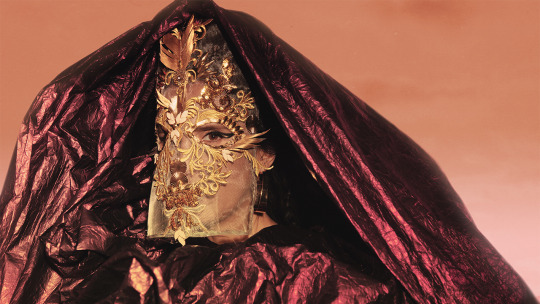
Ukrainian Crimean Tatar singer Jamala presents her new album QIRIM ("Crimea") together with BBC Philharmonic Orchestra. The live performance will take place on May 11 in Liverpool as part of the British-Ukrainian EuroFestival at Eurovision 2023.
QIRIM includes 14 ancient songs, each of which represents a certain area of the Crimean Peninsula and presents the local culture and language. More than 80 musicians joined the work on the album.
"Today, the language in which the compositions are written is on the verge of death, according to UNESCO. The people who created these records have been under threat of extinction for centuries. But is it possible to erase the memory of the monumental beauty of music, which was passed down from generation to generation?" — Jamala said.
EuroFestival is a Ukrainian-British festival at Eurovision 2023 dedicated to Ukrainian culture. It will take place from May 1 to 14 and will present 24 projects, 19 of which were created in collaboration between British and Ukrainian artists.
As part of the program, you will be able to see several installations of Soloveiko Songbirds, where nightingale figures will be presented in honor of each Ukrainian region. There will also be theatrical performances with the participation of Ukrainian artists, the project-unification of Liverpool and Kyiv ravers Rave UKraine and much more.
The BBC Philharmonic Orchestra is the national British symphony orchestra. It is the main radio ensemble of the British Broadcasting Corporation (BBC) and one of the leading symphony orchestras in Great Britain. The orchestra was founded in 1930.
• Source: Slukh | Translation from Google •
42 notes
·
View notes
Note
hmmm 13 and/or 17 from the classical music asks!
13 - My favourite ballet :: It has to be either The Limpid Stream, The Golden Age or (the wildcard choice because it’s not technically a ballet but a ballet was made from it) Symphony No.11 (All by Shostakovich because)
17 - My favourite orchestra/choir/chamber ensemble :: My favourite orchestra is the BBC Philharmonic, my favourite choir is the Halle (I know 3 people in it) and my favourite chamber ensemble is I can’t decide! Either the Brodsky or Borodin or the Emerson String Quartet.
2 notes
·
View notes
Text
Carl Davis 1936 – 2023

Carl Davis
October 28, 1936 – August 3, 2023
American-Born British Conductor and Composer.
Order of the British Empire Recipient
Born in Brooklyn, New York
Died in Oxford, England
Bafta-Winning Composer Carl Davis Dies Aged 86 - The Guardian
Musician best known for BBC’s Pride and Prejudice and 1981’s The French Lieutenant’s Woman
also composed for silent film, stage and concert hall
Carl Davis, ‘French Lieutenant’s Woman’ and ‘Napoleon’ Composer, Dies at 86 - Hollywood Reporter
His music for classics stimulated a global revival of silent film performance with live orchestras.
Carl Davis, BAFTA-Winning Composer of ‘The French Lieutenant’s Woman,’ Dies at 86 - Variety
Carl Davis - Wikipedia
♪♪♪ ♪♪♪ ♪♪♪

Carl Davis and The City of Prague Philharmonic Orchestra -
End Titles Theme, The World at War (1973 | 2004)
Carl Davis
from:
"The World at War" Soundtrack
(30th Anniversary Edition)
Orchestral | Soundtrack
JukeHostUK
(left click = play)
(320kbps)
Personnel:
Carl Davis: Conductor
The City of Prague Philharmonic Orchestra
Recorded:
@ The Barrandov Smecky Soundstage
in Prague, The Czech Republic
during August of 2003
Released:
on January 20, 2004
Silva Screen Records
Composed in 1973
♪♪♪ ♪♪♪ ♪♪♪
5 notes
·
View notes
Text
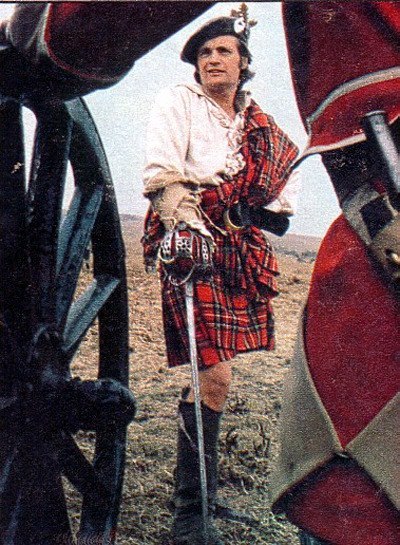
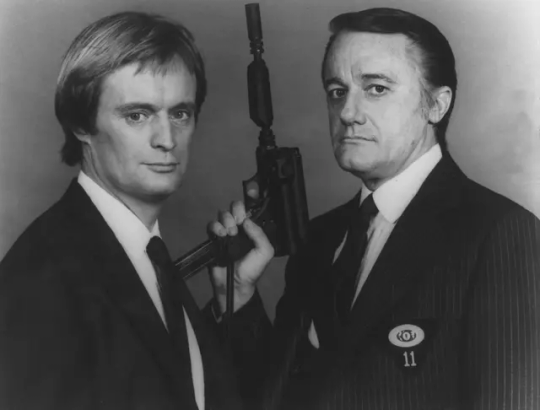
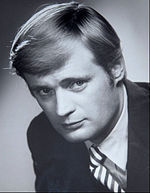
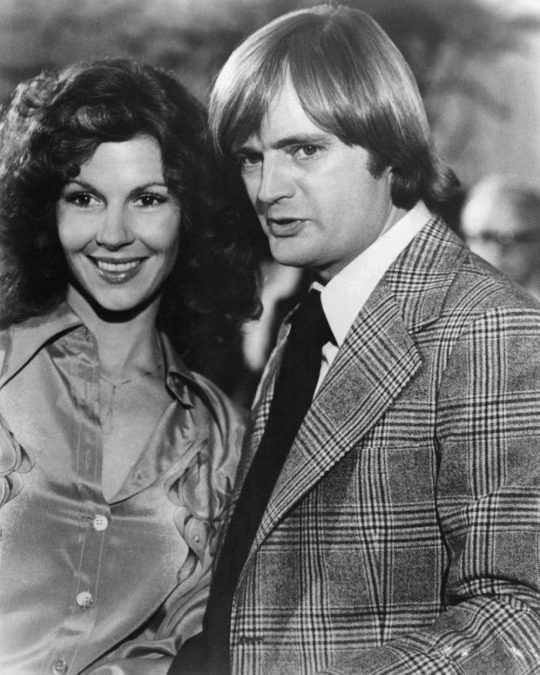
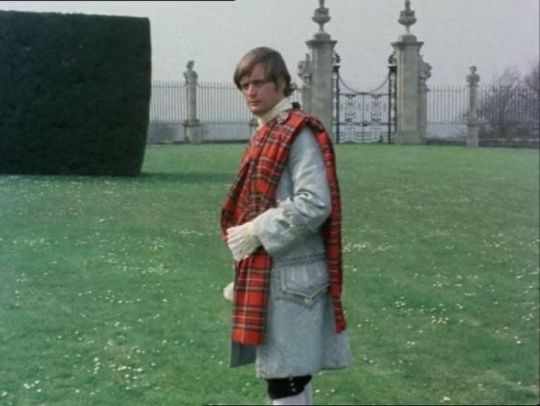
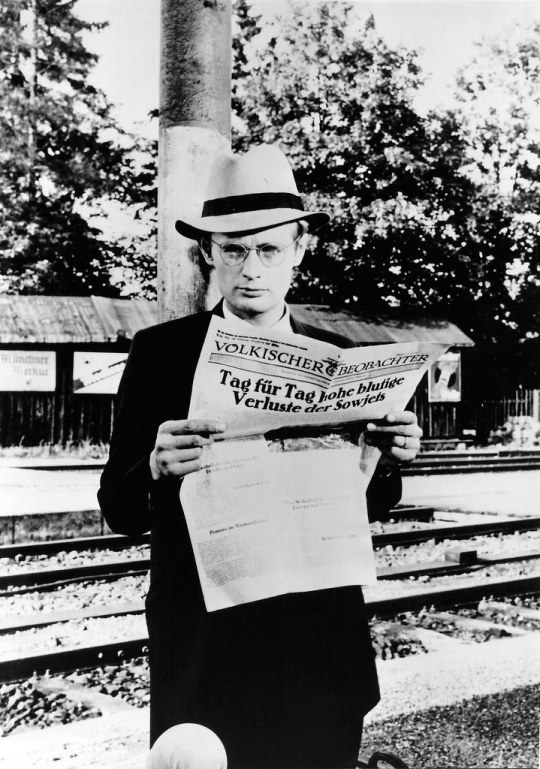
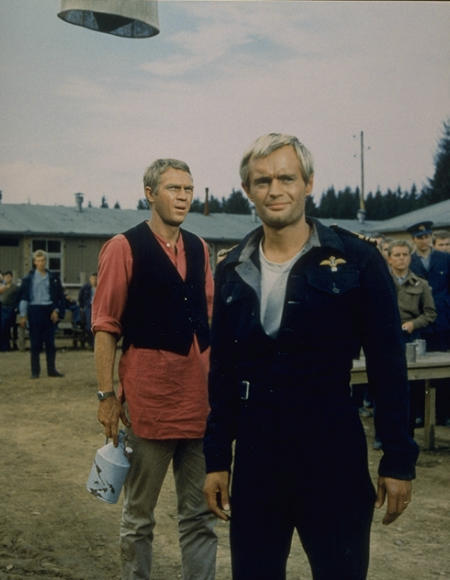
Happy 90th Birthday Scottish actor David McCallum.
Born as David Keith McCallum, Jr on this day 19933 in Maryhill, Glasgow, the second of two sons of Dorothy Dorman, a cellist, and orchestral violinist David McCallum Sr. When he was three, his family moved to London for his father to play as concertmaster in the London Philharmonic Orchestra. Early in the Second World War, he was evacuated back to Scotland, where he lived with his mother at Gartocharn by Loch Lomond.
McCallum won a scholarship to University College School, a boys' independent school in Hampstead, London, where, encouraged by his parents to prepare for a career in music, he played the oboe.In 1946 he began doing boy voices for the BBC radio repertory company. Also involved in local amateur drama, at age 17, he appeared as Oberon in an open-air production of A Midsummer Night's Dream with the Play and Pageant Union. He left school at age 18 and was conscripted, joining the 3rd Battalion the Middlesex Regiment, which was seconded to the Royal West African Frontier Force.In March 1954 he was promoted to Lieutenant. After leaving the army he attended the Royal Academy of Dramatic Art (also in London), where Joan Collins was a classmate.
David McCallum’s acting career has spanned six decades; however, these days he is best known for his starring role on the police procedural NCIS as medical examiner as Dr. Donald “Ducky” Mallard. I first really remember McCallum for his role in another US show, The Invisible Man which ran for 13 episodes in the 70's. McCallum by then was a veteran of many TV and Film roles, starting in the 50's including Our Mutual Friend and The Eustace Diamonds, in the 60's he was in several ITV Playhouse shows before moving across the Atlantic to take roles in The Outer Limits and his big break as Illya Kuryakin in several incantations of The Man from Uncle.
His most notable films were The Greatest Story Ever Told as
Judas Iscariot and of course Ashley-Pitt 'Dispersal' in The Great Escape.
As well as the aforementioned Invisible Man in the 70's he took time to pop back over to our shores to star in two quality series, as Flt. Lt. Simon Carter in Colditz and Alan Breck Stewart in an adaption of Robert Louis Stevenson's, Kidnapped.
The 80's saw him team up with the lovely Joanna Lumley in Sapphire & Steel and several guest roles in the likes of The A Team, Hart to Hart and Murder, She Wrote as well as a one off reprise of Illya in the TV movie The Return of the Man from U.N.C.L.E.: The Fifteen Years Later Affair.
The 90's saw David in Cluedo and Trainer on our TV screens over here and American science-fiction series VR-5 in the states..
During the last 20 years or so he has been in the kids TV show, Ben 10: Omniverse as the voice of Professor Paradox and of course Donald Horatio "Ducky" Mallard in over 350 episodes of the popular NCIS.
David has been married twice. He married his first wife Jill Ireland in 1957. They met on the set of the movie Hell Drivers. Together, they had two sons and a daughter, Paul, Jason and Valentine, with Jason being the only one who was adopted. In 1963, David introduced Jill to his co-star on The Great Escape, Charles Bronson, and she left David and married Charles in 1968. In 1967, David married Katherine Carpenter and they have two children together, a son Peter and a daughter, Sophie. He and Katherine currently live in New York.
In NCIS since 2018, Ducky, played by McCallum, has appeared in fewer episodes. avid McCallum explained that appearing in fewer episodes will allow him to see more of his family, which includes his wife, children, six grandsons, and their cat, Nickie. According to IMDB he has chalked up an amazing 457 appearances in the show, morethan anyother character in the series.
144 notes
·
View notes
Text
!!! just saw a their tweet about them being ambassadors for RSD UK this year and releasing a limited edition (vinyl) recording of their live performance with The BBC Philharmonic Orchestra, but just for independent record shops (on Saturday April 22nd)

11 notes
·
View notes
